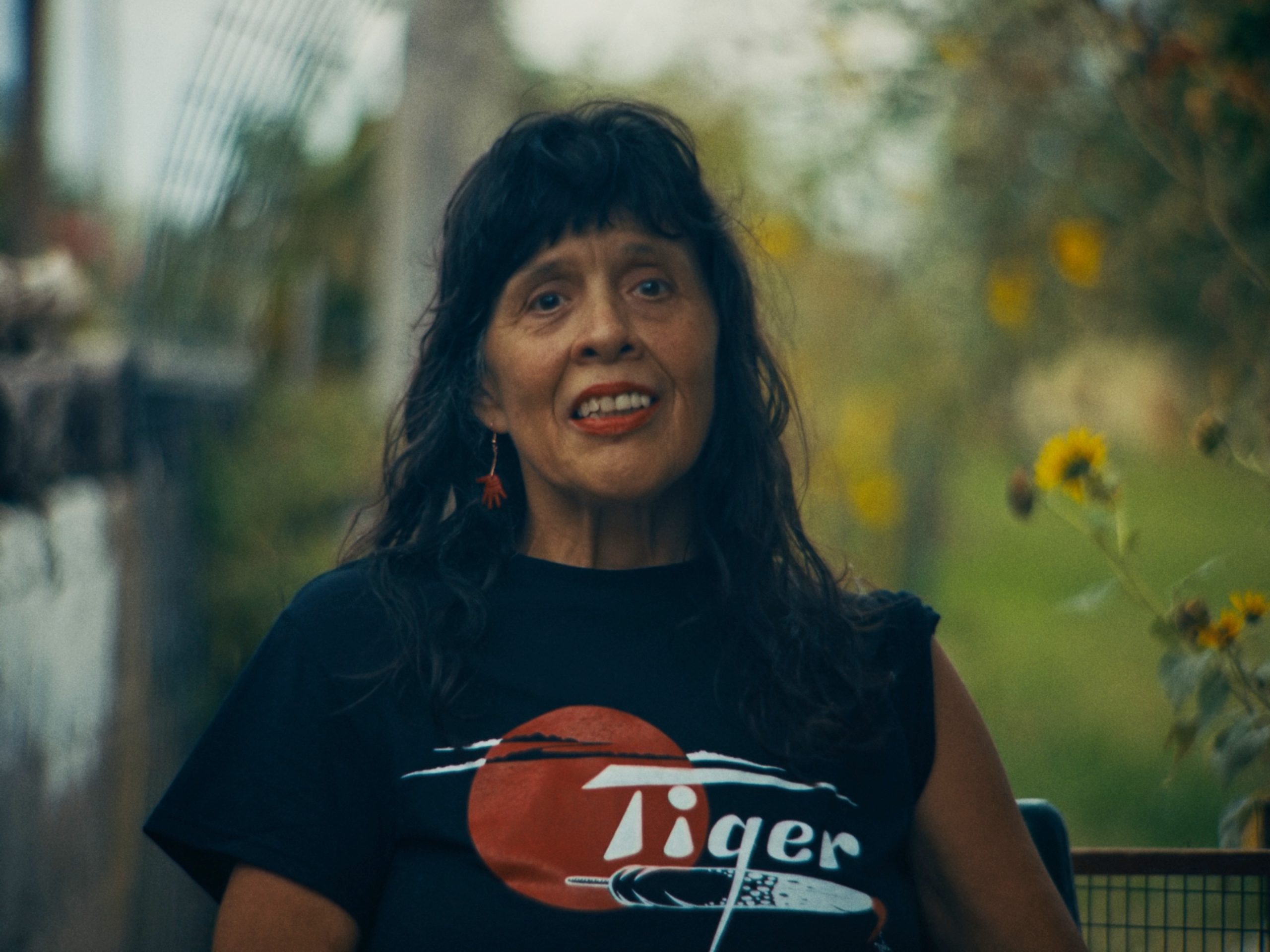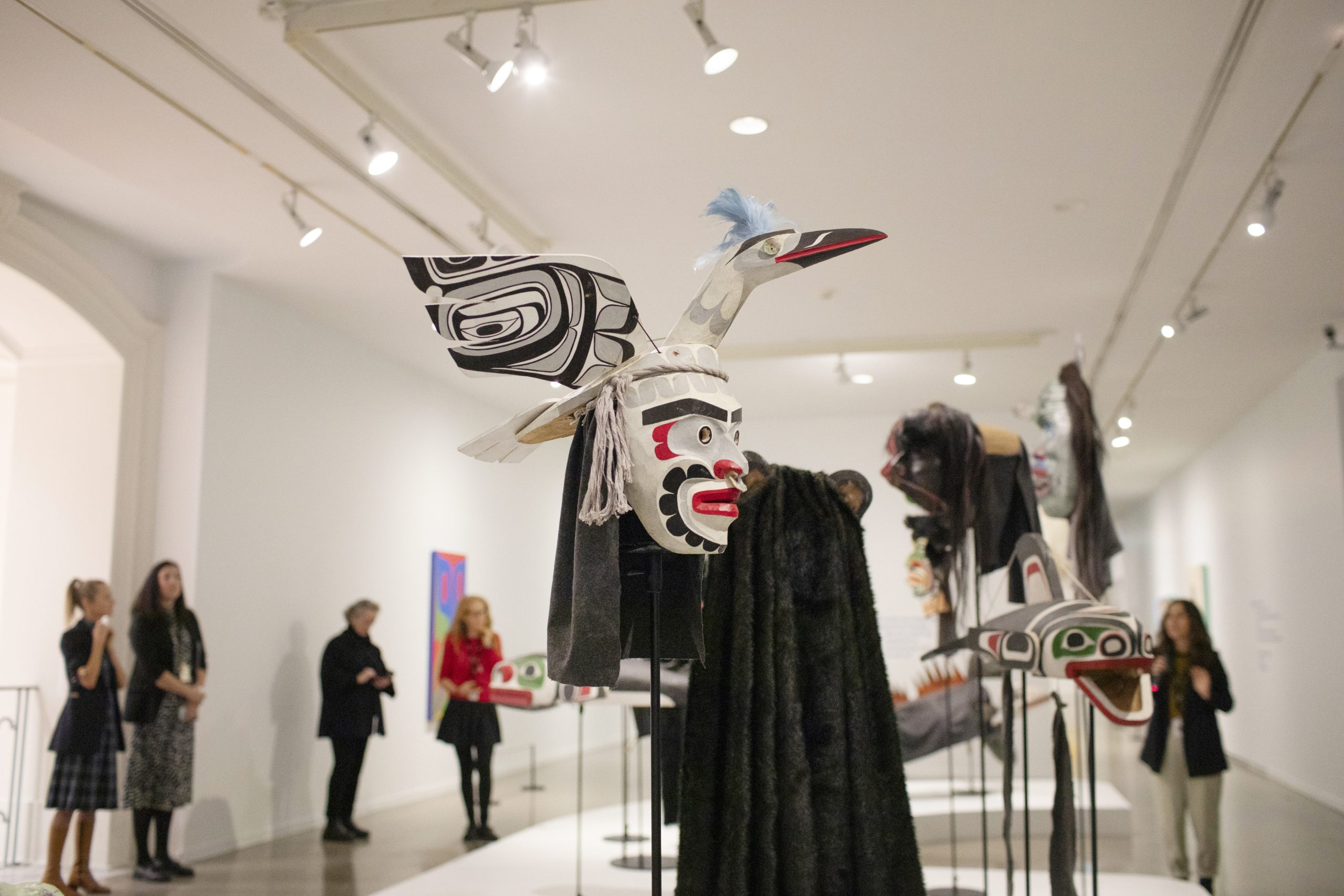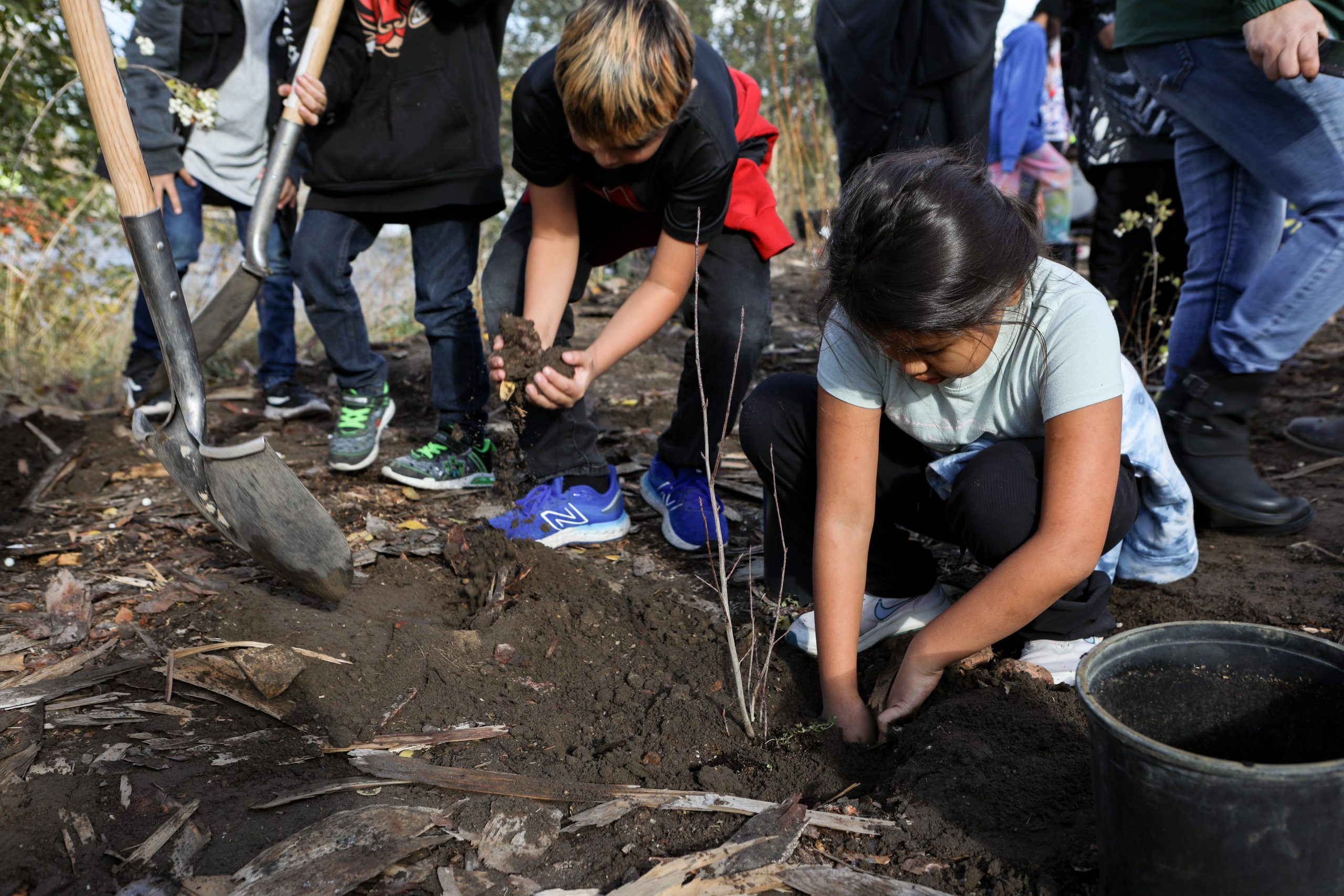After another beloved relative dies at the hands of police, calls for change amplify
The family of Chris Amyotte, Leaping Frog Man, says the 42-year-old was distressed and seeking help when police shot him six times with a beanbag gun
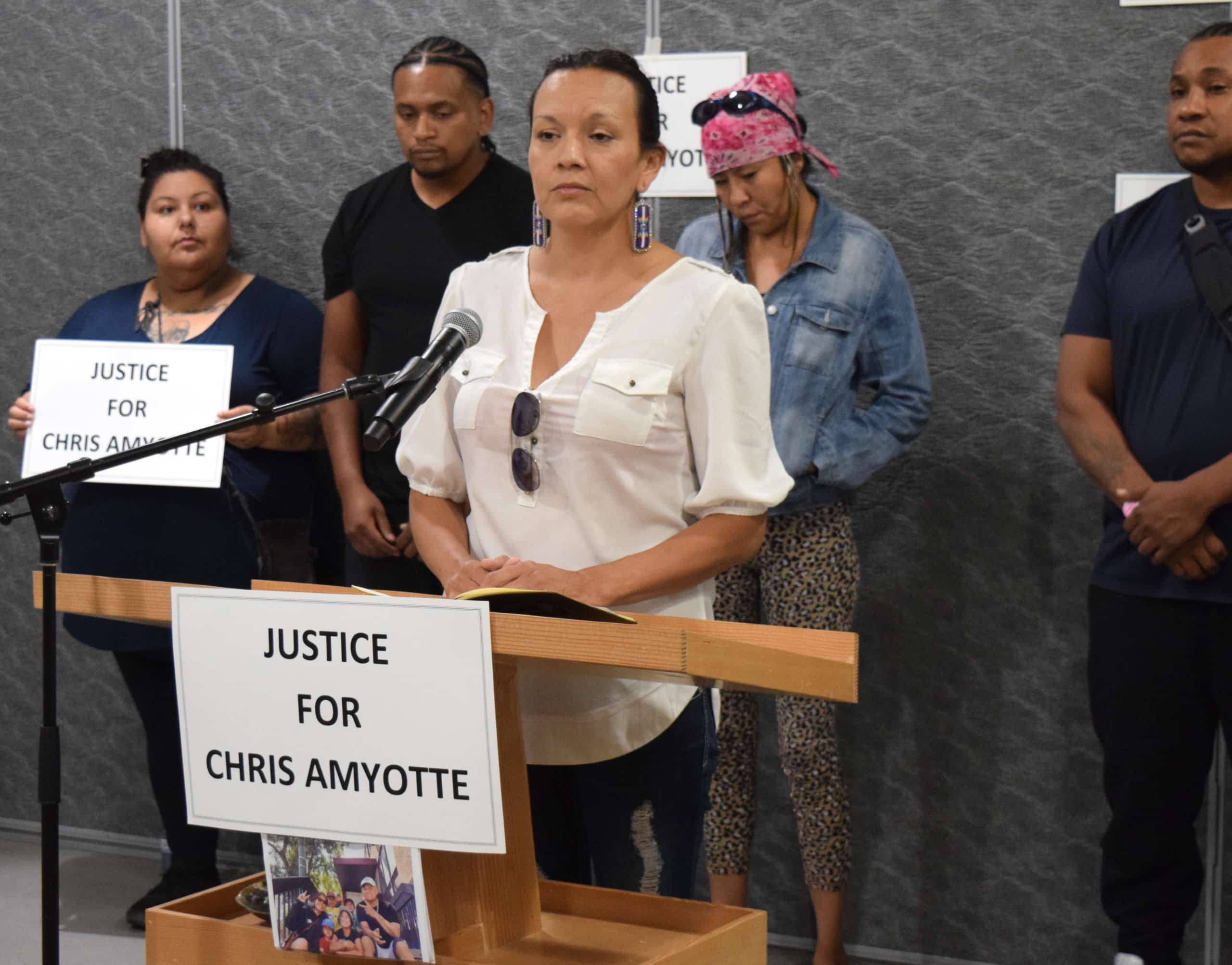
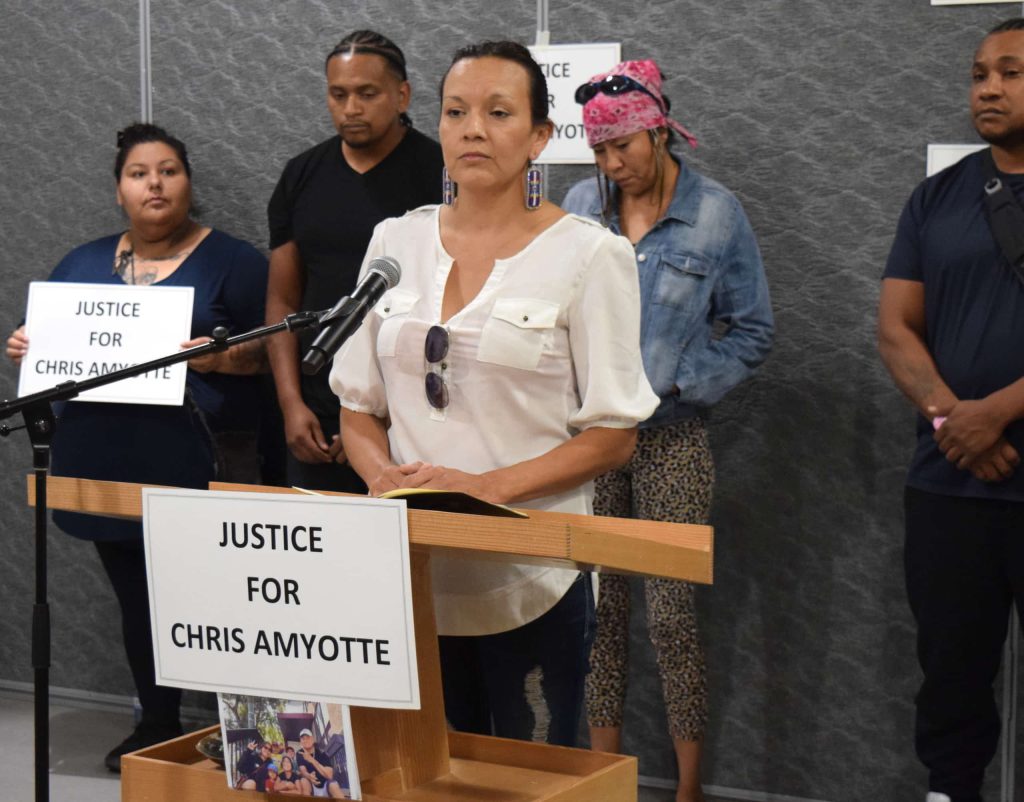
Content warning: This story contains details of police violence against Indigenous people. Please read with care.
The family of an Anishinaabe man who was shot by police with a beanbag gun is calling for a public inquest into his death — saying law enforcement must undergo policy changes that address pervasive systemic discrimination.
The call from Chris Amyotte’s family builds on wider demand for immediate reform to law enforcement across the country after several recent high-profile deaths of Indigenous Peoples at the hands of police. The issue of structural racism in the police force stems back to its very inception in “Canada.”
Amyotte, Leaping Frog Man, was from the Ditibineya-ziibiing (Rolling River) First Nation. The 42-year-old lived in “Winnipeg,” but had been in “Vancouver” visiting his daughter before she started school in September.
He was on the Downtown Eastside on Aug. 22 when his family says he was sprayed with bear mace. He had removed items of clothing and was pouring milk on himself to try to relieve the pain.
While he was being helped by the community, a family statement says, officers arrived and demanded that everyone step away from him before police shot him six times with a beanbag gun, family members allege. A beanbag gun is a type of weapon that is supposed to be less-lethal than a regular shotgun but can still cause serious injury and death. He passed away shortly after.
Amyotte’s cousin from Rolling River First Nation, Samantha Wilson, Loud Thunderbird Woman, told media on Thursday that the family has not been contacted by anyone from the Vancouver Police Department (VPD) or the Independent Investigations Office (IIO).
“I’m here to seek understanding and reasoning behind the split-second decision made by this police officer to pull this trigger six times instead of one,” said Wilson.
“That would have immobilized Chris and caused him to fall to the ground and he could have administered the care that he was begging for, and instead his life was taken.”
The IIO confirmed it’s investigating and that a beanbag weapon was used, but neither the IIO or the VPD have identified Amyotte by name.
Leaping Frog Man
Wilson was bolstered by other relatives who stood behind her as she spoke to reporters on the family’s behalf, while she shared about Amyotte’s spirit name and how he embodied it.
“In the Anishinaabe culture we are all spirits and before we enter the physical realm, the physical world, we are all gifted with names,” she said. “And though Chris learned his spirit name later in life, his name is Leaping Frog Man.”
She said that when Amyotte first received the name, he was humoured by it, because he was expecting something majestic but instead he was gifted with Leaping Frog Man.
“But we very much embody our spirit names that are given to us, and Chris very much embodied his name,” she said. “You know the frog, he zigs and he zags, but his process is always forward, he’s always on the go, he’s observant. And Chris was just that, and he was all about his family.”
Amyotte leaves behind a large family and he had been looking forward to the arrival of his second grandchild, Wilson shared. His younger brother Evan said in a statement that Chris was funny, gentle and a caring person.
“He loved art, to eat, to go to the reserve and go bike riding,” his statement said. “He loved his family and was a good man. His family looked up to him. We are devastated by the loss of Christopher.”
‘Chronic lack of accountability’
In a media release following Amyotte’s death, the Union of B.C. Indian Chiefs stated “there is a chronic lack of accountability and ongoing violence and murder of Indigenous peoples by VPD and police forces throughout B.C.”
The release said that the IIO has not been effectively addressing this reality and — like Amyotte’s family — called for a public inquiry into his death and systemic changes to the VPD.
“UBCIC also demands a shift in funding from police services to de-escalation and trauma-informed, culturally safe services, so people in distress are met with compassion and support instead of violence, death and further oppression and dispossession,” it said.
Following the UBCIC’s statement, the head of the Canadian Police Association (CPA) responded on Twitter, and said UBCIC should “focus on solutions.” He asked what proactive steps UBCIC has taken to help Indigenous people to “avoid interactions with police” and the criminal justice system.
The statement from Tom Stamatakis caused controversy online, and UBCIC replied saying that the tweet was racist and “demonstrates an unfortunate truth — Indigenous people must avoid interactions with the police if they want to live.”
“UBCIC has recommended many changes to end the epidemic of violence by the VPD and police across B.C. and will continue to work on ending these instances of injustice,” said Grand Chief Stewart Phillip in an email statement.
“This response from a ‘police leader’ exposes the grotesque lack of accountability and resistance to change in these colonial, systemically racist institutions.”
In an interview with IndigiNews, Stamatakis said he stood by what he said while recognizing that it caused backlash. He reiterated that he believes the focus can’t be only on police when it comes to preventing the deaths of Indigenous people at the hands of officers.
“It has to also focus on poverty and substance abuse issues,” he said. He added that he doesn’t believe in “divisive language” but that policing must be responsive “to all of our diverse communities.”
Stamatakis also replied to several people on Twitter, telling one person they “missed the point” and stating he intended to focus on a “collaborative, proactive approach.”
Stamatakis has been the president of CPA since 2018. Prior to this, he was the president of the British Columbia Police Association, and began his career as a frontline officer. According to their website, the CPA is the “national voice for 60,000 police personnel across Canada,” and is registered as a federal lobby group.
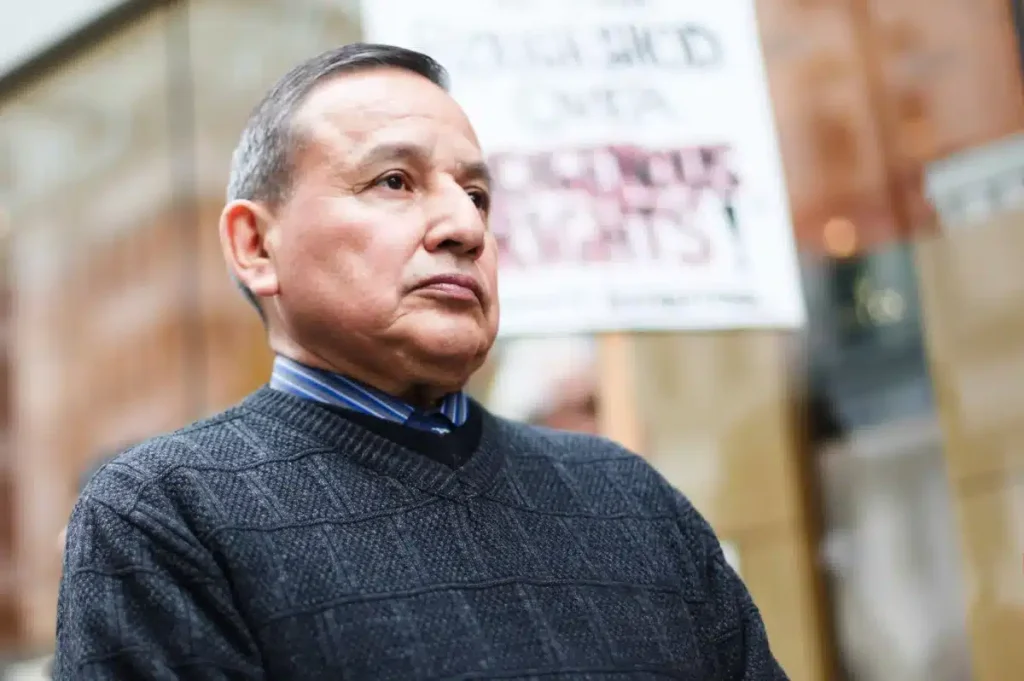
Over-policed but under-protected
Wilson said that what is really needed is improved police de-escalation tactics — and that the first de-escalation attempt utilized can’t be officers firing shots with a beanbag gun.
Amyotte’s family also highlighted the Royal Commission on Aboriginal Peoples whose 1996 report identified the justice system as a “crushing failure” for Indigenous people. There have been more than 20 commissions since 1989 that have investigated systemic racism and gender-based violence in the police and “justice” systems in the country, according to the Assembly of First Nations.
“More than 25 years after this report was released, the failures of justice and policing systems remain entrenched, and there are few signs of positive change,” the family statement said.
In response to increasing demands for systemic changes to policing, the B.C. legislature commissioned a Special Committee on the Reforming Police Act (SCORPA) in 2020. On April 28, the committee released a report which makes a series of recommendations to the provincial government.
“Addressing the root causes of this violence is key to transformational change, [and] it is important that when First Nations people do seek help from police and first responders, they receive it,” the report states.
“First Nations people find themselves simultaneously over-policed and under-protected, which results in different but serious safety gaps which are rooted in racism, sexism, and colonialism.”
‘We can change things’
Wilson said she and her family are seeking legal help and other potential in-roads to find justice for their relative. The family is currently fundraising to try to get Amyotte home and hold a funeral.
“I believe that given the location of this incident in the Downtown Eastside of Vancouver that my cousin Chris was seen as just another vulnerable person in a vulnerable part of the city and that no one would care about him if something bad happened to him,” she said.
“Unfortunately for the Vancouver Police Department, Chris has a family who loves him very much and we are exploring every possible avenue to seek answers for him and his children.”
Wilson also said the family has been connected with other families who have experienced similar tragedies involving police departments across the country who often aren’t held accountable.
“It’s my hope that with giving this statement today I’m going to wake up Indian Country, and I’m going to wake up this colonial country we live in also,” she said. “That our communities can band together and we can change things. That we can demand answers, you know, these people have to remember who they work for. And that’s something that I’m here to see to.”
Author
Latest Stories
-
‘Bring her home’: How Buffalo Woman was identified as Ashlee Shingoose
The Anishininew mother as been missing since 2022 — now, her family is one step closer to bringing her home as the Province of Manitoba vows to search for her
-
Short film showcases the inspiring story of Dana Tiger — and a family design legacy
Muscogee artist’s life, work, and fashion business are the subject of Loren Waters’ Sundance-acclaimed documentary ‘Tiger’



